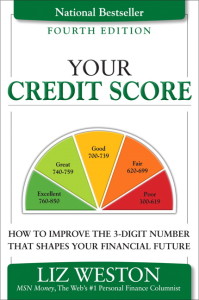Dear Liz: A few years ago when buying my son his college laptop computer, I applied for the store card at a big, well-known electronics store (at the encouragement of the sales associate). I was denied. I have never been denied a credit card before. I have eight cards that are always paid off monthly, own my own home and have a satisfactory retirement income and a top credit score. By receiving the card, I would have had a substantial savings on the computer. The denial has bothered me ever since. Was this a ploy on the company’s part to deny me the savings?
Answer: That kind of bait-and-switch happens sometimes, but there may be other reasons you were denied.
When you were turned down, the company should have provided you with the name, address and phone number of the credit agency it used to evaluate you. You should have immediately requested your report from the agency to see if the information was accurate. Someone may have stolen your identity, and credit denials are often the first sign many victims have that there’s a problem.
A collections account also could have torpedoed your scores. Many people discover that a medical bill, library fine or parking ticket went unpaid only when they find the resulting collections on their credit reports.


